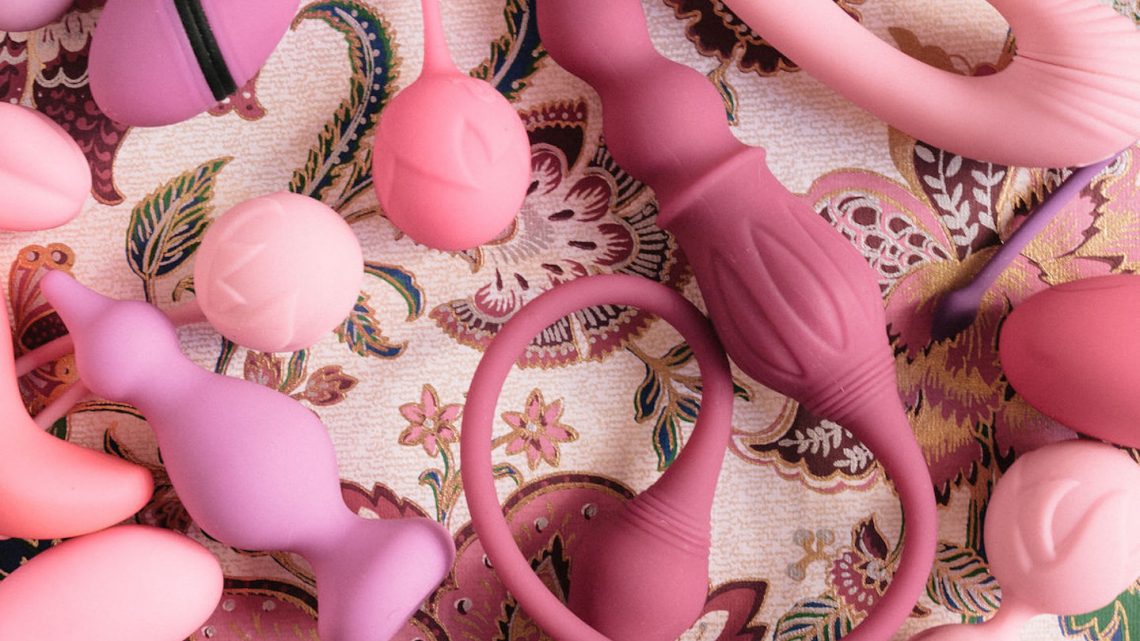
‘Sleazy’ Sex Toy Stores Are a Force of Good
November 6, 2019For the past five years, I’ve rubbed sex toys against my body (or a partner’s body) to review them for various websites. During that time, I've observed shifts in how sex is marketed—some of them, positive; others, not my cup of tea.
Tango, an online sex brand, recently claimed in an email that it's “a new kind of sex company that is changing the way you shop for, ask for, and experience pleasure," catering to "everybody and every body” and elaborating that “ everybody means all genders, all orientations, all genitalia.” Their product: The Tango butt plug, a basic black butt plug identical to Doc Johnson’s The Mood Naughty.
A Tango representative said Doc Johnson was their “production and industrial design partner” working with Tango “to innovate products within their existing molds." It’s not uncommon for brands to provide their products to other companies to be rebranded and resold for higher prices. But Doc Johnson's product already came in gender-neutral packaging. The only thing Tango was doing that was "new" was appealing to Instagram-friendly aesthetics in clean, minimal photos of hands holding a sex toy I already own. (It's been sitting on my bookshelf for so long, I forgot I even had it.)
Tango's website reads, “Straight to your door, so you don’t have to navigate sleazy sex shops.” Tango isn’t the only online brand skittish about sleaze: EdenFantasys says, “Shopping for intimate products was a daunting task that often required a visit to a sleazy sex shop with offensive visuals and language”—until, of course, Eden came along. These brands are saying, “Don't worry, we're not like physical stores: The kind of sex we’re selling isn’t dirty or shameful, and you don't even have to leave the house to buy it.”
Reducing sex shops to “sleazy” places that everyday people would want to avoid elides the importance of feminist and queer brick-and-mortar locations that can play a huge role in community-building and safety. Many engage directly with health professionals, and when consumers visit sex shops, they get a chance to meaningfully connect with one another and learn from experts in the industry.
Many online sex shops have information about sexual health and pleasure available, usually on a blog or in the occasional wordy Instagram post, but feminist sex shops have done the hard work of creating safe enviroments where people can come in, ask questions, and feel more engaged with others. (If anyone wants a fun history lesson, check out Vibrator Nation: How Feminist Sex-Toy Stores Changed The Business Of Pleasure by Lynn Comella.)
There are plenty of sex toy stores that represent and directly serve a fuller breadth of bodies, experiences, identities, and anatomies. When I visit them, I learn new things about myself and my partners. (Even if I can’t get to a local shop, I shop online at them, because I know the value they offer to the communities they serve.)
During a trip to Chicago years ago, I stopped by The Pleasure Chest. The store carried three-inch butt plugs next to Tantus’ Mr. Universe, and the clerks never blinked, no matter which one I picked up. When folks came in laughing about the size and girth of particular toys, the shop attendants patiently explained that bodies are capable of all sorts of things.
I learned about sexual health and pleasure at Smitten Kitten, my local feminist sex shop in Minneapolis, when I first moved to the city in 2007. Helpful shop attendants explained how different body parts respond to different sensations and placed floor models into my hands so I could feel a toy's strength and texture before buying it. A clerk taught me about what materials were safe for bodies, warning about the risk of yeast infections from porous jelly toys available elsewhere. If it weren’t for my in-store visits, I’d still be using cheap, irritating lube and assuming the discomfort was normal.
Smitten Kitten offers specialized public workshops about sex-positive consent, the anatomy of arousal, sex after cancer, and STIs. In addition to the courses they offer, Portland's She Bop gives young people private before- and after-hours binder fittings. (The store also donates 10 percent of its sales each Tuesday to local nonprofits, and sponsors local events and organizations). The Tool Shed in Milwaukee hosts workshops by leaders in sexual health, like Joan Price, Ducky Doolittle, and Tristan Taormino; provides quality products and information for trans and non-binary people; and facilitates educational events with healthcare professionals.
I recently attended a Vulva 101 workshop at Smitten Kitten and have never heard someone talk about genitalia in such an inclusive, easy-to-understand way as the educator, Dale S. E. Mueller, did. They explained that genitals have many of the same parts regardless of gender, but are arranged differently from person to person. The workshop accounted for intersex folks, folks on HRT, and people who had gender-reaffirming surgery. After, I scoured the internet to see if I could find the terminology used in that workshop anywhere else. I found nothing.
In a phone interview, Mueller said the language used at the Vulva 101 workshop was from Emily Nagoski’s Come As You Are: The Surprising New Science That Will Transform Your Sex Life. Still, they said, their five years as a sex educator in a retail environment was the reason they were able to make this information applicable to real life. “Making sex education accessible to people of any gender identity, with any genitals, isn't that hard when you understand anatomy, and when you take time to talk to people different from yourself," Mueller said. "I learn from people, listening to people and talking to people… without making assumptions.” Meaningful in-person exchanges of experience are integral to the education Mueller is able to give.
Look: If an Instagram-chic sex toy store is your jam, go for it. Folks deserve to have a comfortable experience shopping for toys—I'm sure, for some, a neutral aesthetic is part of that. I'm all about meeting people where they are and destigmatizing sex toys for folks who’d be hesitant to buy a vibrator otherwise, and Instagram can be a wonderful tool for spreading information about sex education (that is, when Instagram isn’t actively censoring sex workers or deleting someone’s profile because they photographed themselves with a sex toy). But established feminist sex stores aren't inherently "sleazy;" they offer specialized care and community connection, too.
When I think about the sex industry—what's being sold, and how, and how personally—I want all the parts of sex that are inclusive, well-considered, educated, and educational. I find them thanks to people at shops that account for the variety of people’s desires and diverse bodies—and understand the importance of interpersonal connection. Feminist sex shops don’t turn away when things feel complicated (like when a basic butt plug doesn't fill you up); they're happy to address sex head-on with you. When we’re scared or ashamed of a little “sleaze,” we miss the opportunity to engage with people directly—and more meaningfully with ourselves.
Follow Archie Bongiovanni on Twitter.
Sign up for our newsletter to get the best of VICE delivered to your inbox daily.


